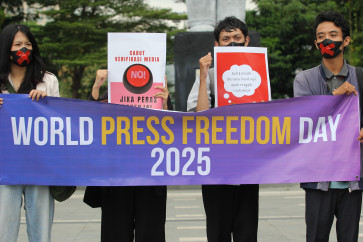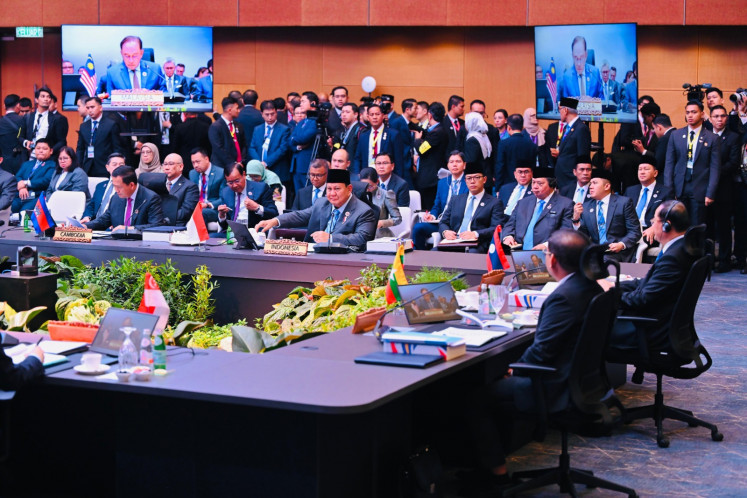Gambling a part of tradition, plaintiffs say
Gambling for certain ethnic groups is a tradition and should not be banned, say plaintiffs for a judicial review request of several contentious articles in a 1974 law prohibiting gambling and articles in the Criminal Code
Change text size
Gift Premium Articles
to Anyone

G
ambling for certain ethnic groups is a tradition and should not be banned, say plaintiffs for a judicial review request of several contentious articles in a 1974 law prohibiting gambling and articles in the Criminal Code.
Petitioners Lim Dat Kui and Suyud filed the request with the Constitutional Court in early April through their lawyer, M. Farhat Abbas, with the first hearing held on Wednesday. They argued that the prohibition on gambling violated their constitutional rights.
“For ethnic groups such as Chinese Indonesians, Balinese, some Manadonese and Batak, gambling is part of their traditions. Although gambling is [legally] forbidden, it is still practised,” the plaintiffs argued. Lim is a Chinese Indonesian.
“Prohibiting gambling is also a violation of people’s right to think, to earn their living and to entertain themselves,” Farhat told the The Jakarta Post on Friday.
He also argued that the law was a vestige of the colonial era.
“The Dutch colonialists were looking for ways to legally punish Indonesians and they saw that we enjoyed cockfights. That’s why they prohibited [these sorts of games],” he said, adding that the Criminal Code itself was a colonial product.
Farhat added that the law “does not target the owners of gambling dens, but rather the small-scale gamblers such as pedicab drivers who gamble at the side of the road”.
Suyud spoke of his personal experience. He was once arrested while playing cards with friends at a traditional market.
“He only wagered Rp 58,000 in the game, but spent four months and 10 days in prison after the Central Jakarta District Court found him guilty of gambling,” Farhat said.
Under the law, gambling is punishable by a maximum sentence of 10 years in prison. Plaintiffs requested the law be annulled.
“At the very least, there should be an exemption for those from cultures where gambling has traditionally been allowed, or there could be specific zones where gambling is allowed or permitted,” Farhat said during Wednesday’s hearing.
Another alternative, he added, would be to ban gambling only for those whose religion prohibited it.
Legislators have objected to the judicial review request.
The head of the House of Representatives’ Commission VIII on religion, social affairs and women’s empowerment, Abdul Kadir Karding, said the law stopped people from gambling.
He added that the problem was not with the law, but with its enforcement, which he said needed improvement.
The panel of judges is chaired by Hamdan Zoelva and includes Maria Farida Indrati and Arsyad Sanusi. They questioned the plaintiffs’ arguments, focusing on the articles of the Constitution that plaintiffs cited as a basis for the review.
“Don’t misinterpret Constitutional articles. What is the relation between Article 27 and gambling?” Hamdan said.
Article 27 states that all citizens are equal before the law and the government and obligated to uphold the law without exception.
Maria also advised the plaintiffs to beef up their petition, calling it vague.
Arsyad also called for the petition to be improved by questioning the arguments, the plaintiffs’ legal standing and the expenses the plaintiffs would have to bear during the process.
The panel also questioned claims that gambling was part of the tradition of all the ethnic groups the plaintiffs cited.









